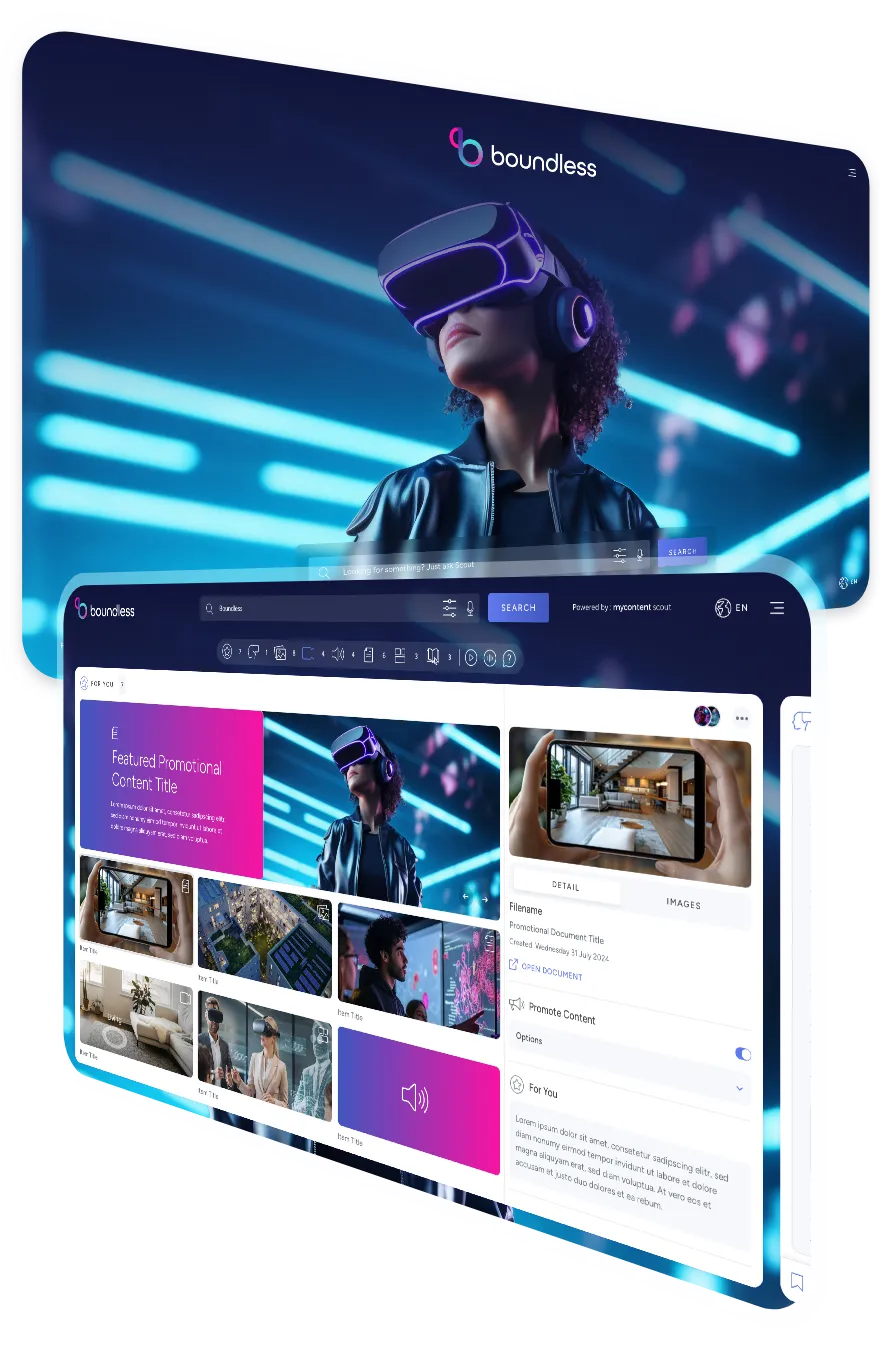.webp)
In an increasingly globalised world, collaboration across borders is not just a competitive advantage—it's a necessity. But even with advanced communication tools, one fundamental challenge persists: language barriers. Whether you're working with colleagues in different countries, managing a multinational customer base, or creating training content for a diverse team, navigating multiple languages remains a costly and time-consuming hurdle.
Enter multilingual AI-powered enterprise search.
Solutions like MyContentScout, a leading AI-powered search platform, are redefining how organisations find and share knowledge across languages. With the ability to index, search, and surface content in multiple languages—including French, German, Portuguese, and more—teams can collaborate more efficiently, access institutional knowledge seamlessly, and make informed decisions faster.
In this blog, we explore how multilingual AI search works, why it matters, and how your organisation can use it to foster more inclusive, productive, and compliant workplaces.
Today’s teams are more linguistically diverse than ever. Large enterprises, government bodies, universities, and NGOs often span multiple countries and regions. Each division may document processes, develop resources, and produce reports in different native languages.
This diversity, while a strength, often leads to siloed knowledge and communication breakdowns. Critical documentation written in Spanish might be inaccessible to a team member in Germany unless manually translated. A safety protocol video in French might be overlooked by an English-speaking engineer on a tight deadline. These inefficiencies don’t just slow down work—they can result in duplicated effort, missed insights, or even compliance risks.
Traditionally, bridging these language gaps has required:
These options are costly, inconsistent, and unsustainable at scale.

AI-powered search platforms like MyContentScout use natural language processing (NLP) and machine learning models trained across multiple languages to eliminate language silos.
Here’s how MyContentScout's multilingual search features work:
Employees can find answers without relying on translation tools or multilingual colleagues. This translates to:
With centralised knowledge accessible across all languages, departments avoid recreating documents or duplicating work due to language constraints. This reduces wasted time and translation expenses.
Cross-functional and cross-regional teams can access a shared multilingual knowledge base, enabling faster collaboration, knowledge transfer, and decision-making.

Having policy documents and safety procedures accessible in every employee's native language ensures regulatory compliance, particularly in industries like manufacturing, healthcare, and government.
MyContentScout allows organisations to scale localisation by translating only what’s needed, rather than full repositories—saving thousands in professional translation costs.
Imagine a manufacturing company with facilities in Germany, Brazil, and Canada. Each site has its own training protocols, videos, and operational manuals—produced in German, Portuguese, and English respectively.
Without multilingual AI search:
With MyContentScout’s multilingual search capabilities:
This not only improves cross-site training and compliance, but also accelerates knowledge transfer across borders.

MyContentScout currently supports intelligent search and content indexing in:
With continuous updates to our AI language models, support for additional languages, regional dialects, and industry-specific terminology is always evolving.
As generative AI and NLP technologies advance, multilingual enterprise search tools will offer even more intuitive capabilities:
Organisations that adopt multilingual AI search today position themselves to:
In a world where every second and every insight matters, language should never stand in the way of collaboration or decision-making.

Ready to unlock your internal content across languages and geographies?
Schedule a free demo of MyContentScout and see how AI search can help your teams:

Get in touch with our team to arrange a demo of MyContentScout and see how it could transform your workflow with AI search, content analysis and categorisation, saving you time and providing smart insights from various sources.
